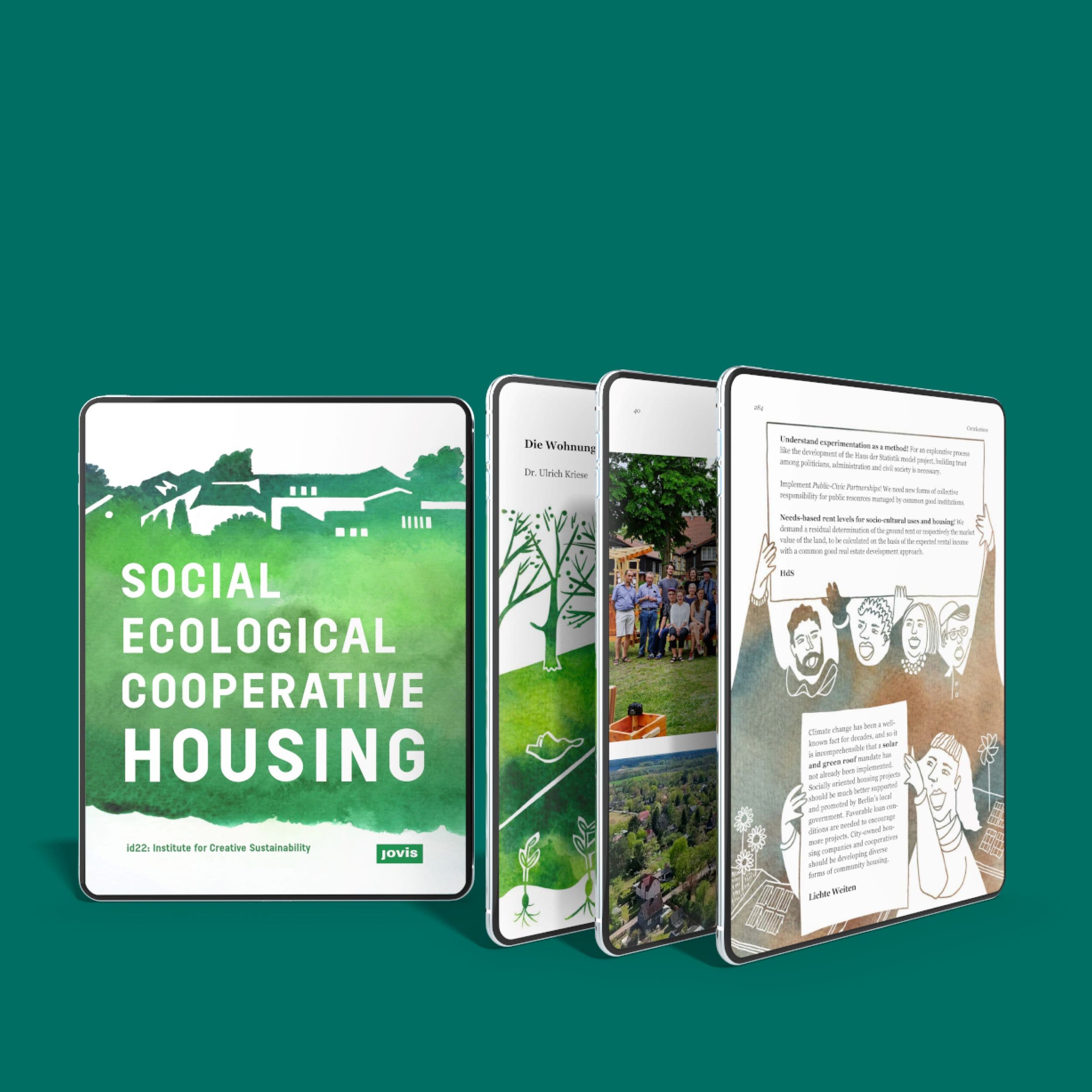AI-Generated Summary
Context and Publisher
The eBook "Cooperative Social-Ecological Housing" is published by id22: Institute for Creative Sustainability, based in Berlin, Germany. This organization focuses on innovative approaches to sustainability, particularly in the context of housing. The authors, including Michael LaFond, Giulia Carones, and Alex Valder, are described as "activist-experts," drawing from their extensive experience in researching and working with cooperative housing projects.
Overview of Cooperative Housing
The book provides a comprehensive examination of cooperative and community-based housing projects in German-speaking countries, emphasizing the integration of social and ecological sustainability. It argues that housing cooperatives can play a crucial role in addressing pressing challenges such as climate change, housing affordability, and social inequality through innovative building and living strategies.
Key Findings and Model Projects
Highlighting 12 model projects, primarily located in Berlin and other German-speaking cities, the book showcases various approaches to social-ecological cooperative housing. These projects include both renovations of existing structures and new constructions. They aim to provide affordable housing while incorporating vital environmental features such as energy efficiency and renewable energy sources.
Alternative Ownership Models
Many of the featured projects utilize alternative ownership models, including community land trusts and the Mietshäuser Syndikat, which help to ensure that housing remains permanently affordable and non-speculative. This innovative framework is crucial for maintaining accessibility in a market often driven by profit motives.
Participatory Planning and Governance
Participatory planning and self-governance are highlighted as significant themes throughout the book. Residents are actively involved in decision-making processes, fostering a sense of community and shared ownership. This engagement is essential for creating living environments that reflect the needs and preferences of the inhabitants.
Challenges Faced
The book does not shy away from addressing the challenges associated with cooperative housing. It notes difficulties in financing, the challenge of balancing affordability with ecological considerations, and the importance of maintaining long-term community engagement. These issues must be navigated carefully to ensure the success and sustainability of such projects.
Policy Support and Financing
The authors advocate for increased policy support and financing options to scale up cooperative housing models across Europe. They argue that these community-led initiatives have the potential to be more innovative and responsive to social and environmental needs compared to conventional housing developers.
Conclusion
In conclusion, "Cooperative Social-Ecological Housing" makes a compelling case for the potential of cooperative and community-led housing models to address interconnected housing, social, and environmental challenges. Through practical insights and examples, the book serves as a resource for individuals and organizations interested in developing similar sustainable housing projects across Europe.
